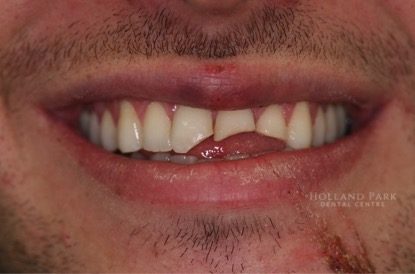Composite Bondings
Posted by: Jodie Blades Diploma Level 3 in Dental Nursing
Medically reviewed by: Dr Adeel Nazir BDS(Lond) MJDF RCS MScEndo(KCL)
”Composite Bonding are cheaper than Porcelain Veneers
Composite Bonding – Do they really work?
If you’ve got chipped, broken or misshapen teeth, composite bondings could be the answer. Tooth bonding is a procedure where we shape, mould and polish a tooth-coloured composite resin to one or more of your teeth to repair damage or improve aesthetics. It’s a cost-effective solution because it’s considerably less expensive than other cosmetic dental procedures, such as crowns and veneers.
Will Composite Bondings work for me?
Bonding is usually used for filling chips, fractures or gaps between teeth, or for fixing discolouration so providing you have healthy, decay-free teeth you will be suitable for composite bondings. The colour of the resin is matched to your teeth, so it will appear as though it is a natural part of the tooth.
You can Book a Free Smile Assessment to see what cosmetic treatment is right for you online.
HOW LONG DO THEY TAKE TO FIT?
Usually, just one visit is needed and they are minimally invasive. They require periodic polishing to keep them beautifully white and natural-looking – this is dependent on your diet and your lifestyle.
DO THEY LOOK GOOD?
The cosmetic filling material, available in an enormous range of colours and translucencies, is expertly built in layers to mimic your natural tooth’s enamel. Bondings can mask chipped, broken and misshapen edges and spaces to give a straighter, more aesthetic smile.
CAN MY REGULAR DENTIST DO THEM?
All of our general dentists have a keen eye and a skilled hand and enjoy composite bondings and transforming their patients’ smiles with this modern and minimally invasive technique.
How do I care for my composite bond?
Here are a few tips for ensuring your bond stays strong and unstained:
- Avoid tea, coffee, smoking and food which may stain for 48 hours after having the procedure done.
- Brush your teeth often and see the hygienist regularly to maintain good oral health. This will help your composite bond stay clean and unstained.
- Avoid biting nails or chewing items such as pen lids, which may chip the material. Bonds aren’t as strong as a normal tooth so it’s important to take precautions to avoid damage.
With good oral hygiene and regular check-ups, your composite bond should last for years.
Book a Free Consultation Today


Sorry, the comment form is closed at this time.